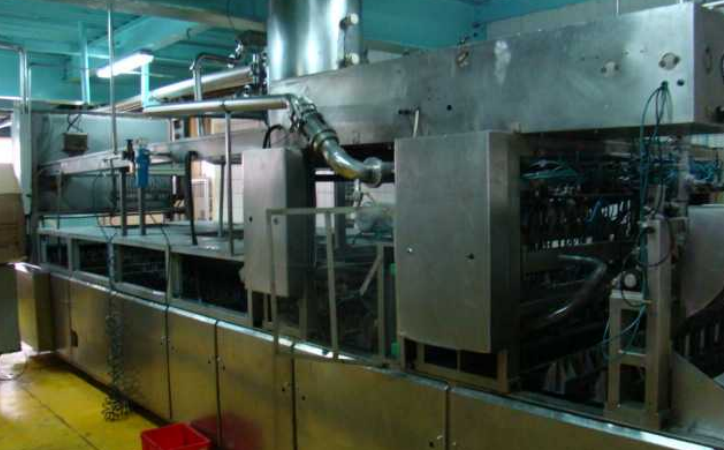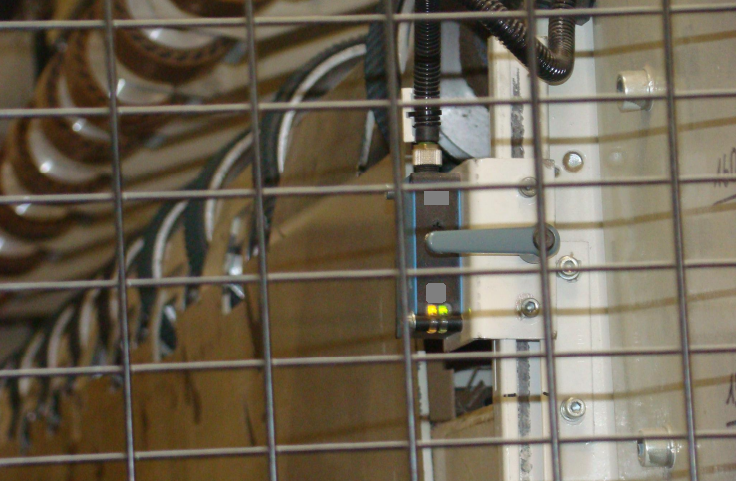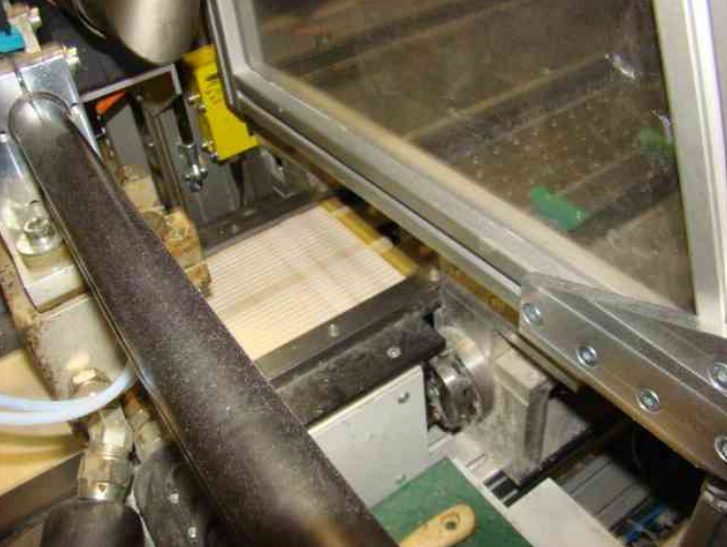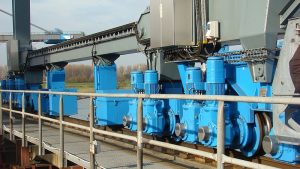What is this article about?
The phone rings more than once a month or an email comes in asking: “ As an expert, do you speak English?” “
I’m always surprised that this question is asked so often. Of course, in a professional environment and not just in international legal disputes in mechanical engineering, you must be able to communicate, write and negotiate in English as an expert.
International disputes in mechanical engineering are time-consuming and can be costly. As a rule, local domestic lawyers are required at least in the country or even in the countries with the respective court locations abroad. Communication “law-technology-law” must also be guaranteed across national borders if you, as a mechanical engineering company and litigant, do not want to fall behind legally in the matter to be clarified.
In an international legal dispute in the field of mechanical engineering, an expert who can communicate in English is necessary. If an expert speaks English and is fluent in business, this is fundamentally important for the course of the process for an involved party. The expert takes on a crucial role in international mechanical engineering litigation. This means that effective communication and a correct assessment of the facts can be ensured if an expert is fluent in English.
Find out more about the processes in international mechanical engineering, possible language barriers and working in an international environment on behalf of mechanical engineering companies, commercial companies and insurance companies. The requirement is that the commissioning party always speaks English as an expert. Don’t be put off by the cost, make sure you get the best technical expertise as a machine appraisal from an appraiser in English to protect your legal interests. To do this, an expert must communicate in English if it is an international conflict. Read about classic events and cases in this area in the following sections.
Common causes of international legal disputes in mechanical engineering
There are various reasons why international legal disputes in mechanical engineering can arise between the manufacturer of a machine and the customer abroad.
The cases I have supported so far have primarily dealt with the following problems:
- Technical defects:
- Malfunctions: The machine does not work as agreed or has unexpected errors.
- Safety defects: The machine poses a safety risk to users.
- Violations of technical guidelines.
- Incorrect dimensioning: The machine does not meet technical and/or legal requirements.
- Breach of contract:
- Defective delivery: The machine is not complete or does not meet the agreed specifications.
- The condition of machines used must be checked with regard to the agreed contractual conditions.
- Liability issues:
- There was personal injury.
- Property damage: The machine caused damage to other machines or objects.
- Product liability: The manufacturer is liable for damage caused by the machine.
There are certainly other key points for international legal disputes in mechanical engineering. It is always clear that an expert must be able to speak English in mechanical engineering and, ideally, master it.
Why does an appraiser have to communicate in English?
International legal disputes in mechanical engineering are not possible without the English language.
In an increasingly globalized world, expert reports in English are often used in international disputes. The English language is the lingua franca of the international business world. Law firms in several countries often work on the same case for the client. It is completely obvious that an expert must communicate in English with the lawyers who, like the expert, are acting on behalf of the same party.
The correspondence with the party lawyers involved takes place
exclusively in English
instead of. That is why the appraiser must also communicate in English and, ideally, an expert must be fluent in English.
In many cases, expert reports need to be read and understood by a multilingual audience. The English language is the most widely spoken language in the world and is therefore the best choice for preparing reports in international mechanical engineering.
In addition, internal meetings, video conferences and on-site appointments in an international environment also take place in English. So speaking English as an expert is a must.
Examples from the international environment
I can assure:
Every activity abroad is exciting.
But it is also clear that working abroad as an expert in mechanical engineering is absolutely possible
has nothing to do with sightseeing.
The journey to and from the place usually takes some time and is exhausting. If you are in a different time zone, it becomes even more strenuous because it is almost always a short stay. Flying from Germany to the USA on Sunday and landing back in Germany on Thursday morning is exhausting.
Case 1: Selling machines in the United Arab Emirates
A European company provided a company from the United Arab Emirates with all of its beverage production machines. These machines were used by the local drinks producer to produce drinks in the Arabian market on behalf of the European company. As part of this business relationship, it was agreed that the condition of the machines should be determined after the end of the contract in order to determine any damage resulting from use. For this purpose, the current values of the individual machines were determined.

At the beginning of the collaboration, both parties agreed that the beverage producer could purchase the machines from the European company at the determined fair value at the end of the contract term. Given the international dimension of this business relationship and the legal and technical complexity, it is essential that all aspects, including determining the condition of the machines and communications, are assessed by an expert in English.
It is obvious that an expert must speak English for this task. English enables consistent and precise communication between the parties. The detailed assessment of the condition of the machines requires clear and understandable documentation that is accessible to all parties involved.
A professional mechanical engineering appraiser ensures the integrity of the appraisal process and helps prevent or resolve disputes. In an international environment like this, the reviewer must communicate in English. This is essential in a professional environment to protect the interests of both parties and ensure a fair solution.
Case 2: Personal injury to a machine
A German manufacturer had sold a machine to other European countries.
The operating instructions did not describe how certain necessary cleaning work should be carried out. Due to the lack of instructions, the operator’s employees working on the machine were very creative when it came to regularly “ solving the recurring problems ”.

During one of these processes, when an employee leaned over a crossbeam, it suddenly moved due to a faulty light barrier and crushed the employee. He survived seriously injured.
In this case there was a criminal case in the EU and a civil case.
Of course it was necessary for an expert to speak English. All communication internally and with the assessor took place in English. The processes were conducted in the respective national language.
The content was about
- Machine safety / Machinery Directive 2006/42/EC;
- Liability issues.
Case 3: Design errors and safety deficits in Poland
A German machine manufacturer developed a custom-made processing machine for the wood industry. This machine was delivered to Poland and did not work as agreed.

The following error types were detected:
- Construction error,
- Development errors as well
- Instruction error.
Essential necessary conditions for placing machines on the market in the European economic area were not met. The machine also did not have a CE marking. There was no nameplate.
The operating instructions were missing.
The fact that there were also technical problems was almost “insignificant” given the large number of errors/defects identified.
Of course, from a technical point of view, this was a simple case in terms of content.
Of course, in this case it was also important that the expert communicated with the management from Poland in English.
Internal correspondence was also carried out in English with lawyers and management.
The party report was submitted to the responsible German regional court in German, although the expert communicated with the client in English.
Case 4: Notification of defects from the USA
Every now and then companies are confronted with a complaint about defects from the USA. This is always “exciting” in many ways.
The procedure for a complaint about defects from the USA is in principle analogous to the procedure within Europe.

However, there is no uniform law for reporting defects on machines in the USA. The rights and obligations of operators and manufacturers may therefore vary depending on the state and purchase agreement.
In this respect, it is always important that
Accompanying lawyers also check which law applies individually.
However, one thing is always the same in all cases:
Demands from the USA are high.
Claimants often try to make repairs with their “own team” or with companies from the USA if there is damage in the USA. This is always costly.
In this respect, if there is damage in the USA, it is extremely important to have a competent party expert if possible
immediately after the damage occurs
gained an impression of the problem in the USA.
This reduces the risk of exorbitant claims from claimants from the USA. Sometimes a good comparison is possible this way.
The fact that a German expert speaks English in mechanical engineering disputes in the USA is self-explanatory.
Intercultural differences
Even in Europe, there are cross-country differences in the understanding of technical and legal issues.
The more the environment of a case differs from the “usual” environment, the more pronounced the differences can be.
There are often classic problems with the reimbursement of expert opinions in international legal disputes in mechanical engineering
- Misunderstandings: Different languages and their translation into English or technical English as well as business cultures can lead to misunderstandings on a factual level.
- Different legal opinions: Legal opinions in different countries can vary greatly. In this regard, it is helpful if, as an expert from abroad, you always have an understanding of the respective positions. As a technical expert, I am always happy that, in cases of doubt, the courts or judges have to make a decision.
- Difficulties in providing evidence in an international environment: Obtaining evidence from another country and presenting it in court can be problematic.
Challenges for parties involved
Even if everyone involved communicates in English, it is sometimes difficult. The linguistic know-how between those involved is always different and is sometimes difficult to understand due to “interesting” accents in meetings.
Communication between the parties, employees, lawyers and experts in English can be complicated by language barriers.
The following are of particular importance in international legal disputes in mechanical engineering:
- Different legal systems: The parties must familiarize themselves with the different legal systems of the countries involved and should have very good legal standing in the countries involved.
- High costs: International litigation can be very expensive.
Particularly because of the high costs of international legal disputes, it is important that a professional expert has a command of English. This makes it possible to gain a better technical understanding of the problem on site. With this knowledge, the lawyers of the same party can better assess their own position. This in turn influences the (technical) legal strategic planning of the case.
Why a professional expert must be fluent in English in mechanical engineering
A wide variety of machines have been exported from Europe all over the world for decades.
Machine errors and the resulting deviations from agreements are practically unavoidable. It is therefore a fallacy to believe that professionals as experts only work in mechanical engineering domestically and in the “nearby area” of their place of residence.
Several times a year there are various problems abroad .
Classic clients for appraisals abroad where an expert needs English are primarily
- mechanical engineering companies,
- Industrial companies or companies and also
- Insurance.
The tasks are diverse. As a rule, an expert in English is required for the following activities:
- Mechanical engineering companies, industrial companies or commercial companies: These companies commission for different reasons and at different times. These may concern questions when initiating a technical-legal dispute. It can also be after a technical problem occurs or when technical aspects are being clarified when the company is confronted with technical and legal allegations.
- When it comes to international machinery cases, insurance companies only commission cases based on the damage that has occurred. This often involves the key points of cause, responsibility and the amount of damage.
You can find an overview of some topics here .
In the case of courts, however, it is rather unusual to commission an on-site visit abroad. German courts are responsible for legal disputes in Germany. In this context, it may be necessary to carry out an on-site visit abroad. In some cases this requires the consent of a competent court in the relevant country. However, overall there is one
Appointments abroad on behalf of a regional court or higher regional court are rather unusual and therefore rare.
Anyone who wants to work permanently in an exciting and demanding environment of mechanical and plant engineering will also have to communicate in English as an expert and write their reports.
It is a must to speak English as an expert
and do so as fluently as possible.
Conclusion and final thoughts
Internationally active mechanical engineering companies, commercial enterprises and industrial companies know it from everyday life: legal disputes are hardly avoidable and occur again and again. This also applies to international legal disputes in mechanical engineering.
The fact that an expert should speak English fluently is one
essential requirement in international business
in conflicts in international mechanical engineering.
An English-speaking expert commissioned by the party usually plays a crucial role in an international machinery dispute.
He must understand the technical problems abroad and explain this to the lawyers on the party side. The lawyers on the party side are often represented in several countries, so an internationally active expert must communicate in English.





